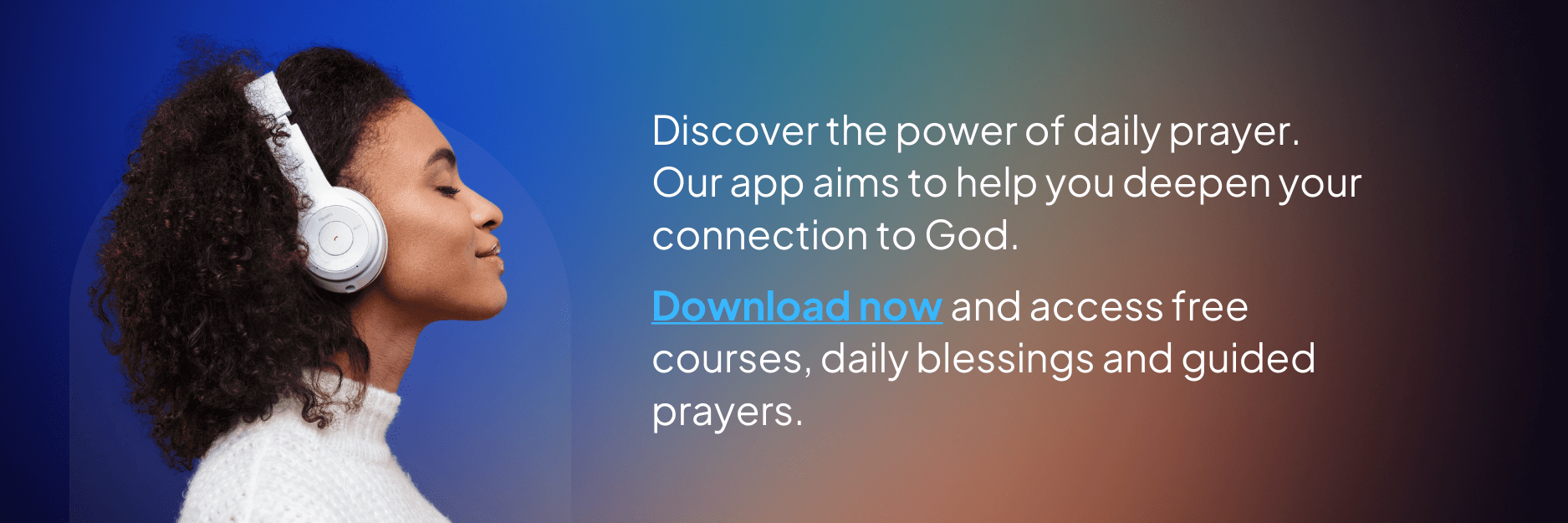
Praying, Fast and Slow: the Art and Science of Improving your Prayer Life
When you pray, do you find you start becoming more aware of all that is going on within yourself: your plans, fears, ideas, enthusiasms, and so on? Do you find yourself coming more into contact with the things that drive you, helpful and unhelpful?
The inspiration for this post was an exciting coming together of two different approaches to life.
One was in reading the ancient writings of John Cassian, who was one of the Desert Fathers and Mothers living in Egypt in the 4th century. He collected ancient teachings, and wrote major works which later formed the basis for Benedictine spirituality.
The second inspiration was Thinking, Fast and Slow by the Nobel Prize winner, Daniel Kahneman. It's a book full of modern wisdom, built on scientific understanding.
Reading these two books concurrently brought insights into how helpful it can be to relate scientific understanding to matters of faith.
The process of silent prayer, particularly of contemplation, which Cassian and many others write about, leads us to a deeper understanding of ourselves. When we take time out for silent prayer, we become more aware of all that is going on within ourselves. We become more familiar with the churn of our thoughts and emotions.
We are also more likely to come into contact with the forces in our minds that drive us, some of which are helpful, and some unhelpful. Kahneman makes the point that we are often largely unaware of these forces. It is therefore important to slow down and think analytically about them, and to recognise the limitations of our intuition.
This article draws on the Bible and the science of Kahneman and others, and offers some practical suggestions for living a more prayerful life.
We'll explore four themes, and at the end of each section you are invited to spend a short time in silent, meditative prayer. You can use this article to learn more about ideas and tools that help you:
- Trust God and build your motivation to pray more often
- Develop greater purity of heart
- Establish a place for prayer
- Pray fast and slow: listening prayer
Trust God and build your motivation to pray more often
At the end of Matthew's Gospel, Jesus says, 'Remember, I am with you always' (Matthew 28:20). Jesus knows that we need assurance that he will be with us.
Trust is required when we adventure into prayer, and when we relate the findings of science to our faith to gain greater understanding.
Trust is required as we seek to learn more about God, both through studying the Bible and through gaining a scientific understanding and learning more about God's creation and ourselves within it.
Sister Ruth has been living and praying for more than 40 years at Malling Abbey, an Anglican Benedictine community. She explained that when she first entered community novices were told not to read books on prayer. The belief was that God would teach them to pray.
If we are deeply convinced of the importance of prayer in our lives, God will teach us to pray, and in truth no one else can.
Sr Ruth was right to trust this teaching, because God did teach her, is still teaching her, and will continue to teach her to pray. However, I would suggest that she had two things that helped her. The first was her commitment to learn to pray. Secondly, she had an environment that was conducive to prayer.
This is backed up by science.
A commitment to pray stems from our motivation. Occupational science describes motivation as coming from our will, and gives this the term 'volition'. Basically, you are motivated to do things because of your values, interests and beliefs.
But critically, "Volition is continuously changing as new experiences can reinforce, challenge and elaborate on existing dispositions and self knowledge."
What this means is that your will - your motivation and volition - can change. If you've had problems sticking with a routine of prayer before, this doesn't mean that you are ill-disciplined, or ran out of motivation. Your supply of motivation is open-ended.
Here is a further favourite quote from Samuel Nyock Ilouga: "volition has a key role in binding an individual commitment to an ambitious career objective."
Prayer is an ambitious career objective!
According to the psychologist Katharina Bernecker, 'studies show that a brief psychological intervention can lead people to adopt nonlimited theory [ie their willpower is not limited and their motivation is open-ended]. But only if the message is combined with strategies that help students implement the idea of nonlimited willpower into their everyday life...'
So we do have sufficient motivation to deepen our prayer lives and to keep going with prayer. What we need are some practical tools to help us acknowledge our nonlimited willpower.
A practical tool to uncover your motivation is to ask yourself the question 'Why pray?' Or, 'Why should I deepen my prayer life?' You might at first come up with answers like, 'I pray because the Bible and church teaches it', or 'Prayer is what Jesus did - a lot'. But why did he pray?
Pause a while
At this point in your reading, you may like to spend some time praying silently with the Bible.
First find a quiet place and adopt a comfortable position for prayer - standing or sitting. Spend a short while relaxing and focusing on your breathing.
Read the following verse slowly a number of times. Chew over it and let it sink in. Then stay with it for a few minutes in silence.
'Remember, I am with you always, even until the end of time.' (Matthew 28:20)
Then ask God to show you a little more about your motivation to pray. There are no right or wrong answers to this question.
Develop greater purity of heart
'Guard your heart and your mind for everything you do comes from it.' (Proverbs 4:23)
Contemplative prayer is sometimes known as prayer of the heart. One key early writer about contemplative prayer was John Cassian, a Desert Father from the 4th century. He was writing predominantly for monks, but his writing has applications for us as well. He asked the question 'Why pray?' and concluded that the answer was 'in order to develop purity of heart - and love'.
He wrote, 'We must practice fasting, vigils, withdrawal, and the meditation of scripture as activities which are subordinate to our main objective, purity of heart, that is to say, love, and we must never disturb this principal virtue for the sake of those others.'
For Cassian, the motive for prayer was to love and to have purity of heart, and the result was a balanced diet of prayer, which included fasting, vigils, withdrawal, and meditation on scripture.
Cassian knew that we needed to be vigilant in our Christian lives, and this is backed up by science.
Daniel Kahneman writes about thinking fast and slow. Fast thinking is more intuitive thoughts and assumptions. Kahneman refers to this as 'System 1'. Slow thinking, or 'System 2', is deliberate, effortful, rational thought. We often don't recognise the instant assumptions we make with System 1, but they hugely influence us, and not always for the better.
Kahneman talks about a process called 'priming'. That is when exposure to a stimulus temporarily influences our behaviour. For example, if you see a picture of a bathroom and then you are asked to complete the word SO_P, you're more likely to say SOAP than SOUP. This priming has troubling consequences in relationship to money.
People who are 'money primed' - see images of money on TV, or Monopoly money, or money on screen savers - become more selfish. They are less likely to help others and more likely to give less to charity.
So the impact of all the media stories about a slide in the economy and the dangers of Brexit is that we are all less likely to give money to charity. This is not something that affects only Christians, or bad people. It affects all of us.
Pause a while
Now step into silence and spend five minutes in prayer.
Reflect on what you have just read.
Listen to God calling you to deepen your relationship with God and to grow in love. Become more aware of all that is going on within your mind, and offer that to God.
You may wish to spend some time with God.
Establish a place for prayer
To summarise so far, commitment to prayer is key and comes from our volition - all we believe - and is open-ended. With an open-ended supply of motivation to pray, we can learn to discipline ourselves, gently, as long as we have some tools to help us. This has implications for you personally, and for the people and community around you. If you have the volition, you can be ambitious and 'run the race that is set before you.' (Hebrews 12:1)
The second element that helps us learn to pray is the environment around us. The environment at Malling Abbey is ordered, in terms of the building lay-out and the way the community lives. This power of discipline is as old as the hills. Our Bible reading for this section is from the book of Daniel:
'When Daniel knew that the document had been signed, he went to his house where he had windows in his upper chamber open toward Jerusalem. He got down on his knees three times a day and prayed and gave thanks before his God, as he had done previously.' (Daniel 6:10)
One of the earliest references to meditation in the Bible is in Genesis: 'Isaac went out to the field one evening to meditate.' (Genesis 24:63) Jesus said, 'Whenever you pray, go into your room and shut the door"'(Matthew 6:6). In these examples and more, prayer is woven into the habits of the day.
Our routines help us to pray. There is a lot of routine in a convent: set times for prayer; for meals; for work such as hospitality or growing food; and recreation such as writing, walking with friends, or creative pursuits. All these activities are build into a rhythm, which means that, in time, the members of the community form helpful habits surrounding prayer.
In fact, habit forming is built into the religious rule of life. St Augustine's Rule says that when you hear the bell for prayer, you gently put down what you are doing and go to pray as if it is the voice of the Lord that is calling you.
If we want to get into a habit of prayer, there are some practical things that will help us.
Charles Duhigg is the author of The Power of Habit about the science of habit formation. He has some good practical suggestions about how to build consistent habits. He suggests that all habits have three components: cue, routine, and reward. If we want to deepen our lives of prayer, it's good to look at our existing cues, routines and rewards.
Michelle has an example of how to create a regular habit of prayer. Let's suppose that she wanted her prayer time each morning to be a bit longer than she was managing at present.
For Michelle, the cue to her morning prayer was a cup of tea. It is a cue that was suggested by a nun when she was 19 and has stuck with her ever since. However, her routine of prayer became inconsistent when she got married and her husband bought up her cup of tea. Sometimes she enjoyed the tea experience so much that she didn't get round to prayer. A new cue was needed. So after the tea, Michelle now lights a candle and says the Lord's prayer. It's now her cue to gently settle down.
Other cues that people have found helpful are: setting a timer, which is a cue for both starting and ending a prayer time, as it means I don't have to keep looking at my watch; meditating quietly even for a few minutes the night before, which is a long-distance cue that can make a real difference to prayer the next morning; using a rosary with a variety of different prayers; or having a particular place set aside for prayer.
Pause a while
Spend five minutes thinking about what cues you find helpful. They may be things you already do, or small things you could add that slow you down and help you focus.

Pray fast and slow: listening prayer
There are no half measures in your life of faith. So how can you love God with the whole of your being?
'Love the Lord your God with all your heart and with all your soul and with all your mind and with all your strength.' (Mark 12:30)
This time we are starting with the science. Let's think for a moment about the assumptions we make. Try this exercise from Daniel Kahneman:
'Please assume that Steve was selected at random from a representative sample. An individual has been described by a neighbour as follows: "Steve is very shy and withdrawn, invariably helpful but with little interest in people or in the world of reality. A meek and tidy soul, he has a need for order and structure, and a passion for detail." Is Steve more likely to be a librarian or a farmer?'
What's your instant response?
Most of the people who respond to this question assume librarian, an instant decision made quickly by System 1, our intuitive brain. Yet in the US (Kahneman is American) there are 20 farmers for every one librarian. When asked this question, System 1 thinking means our emotions tend to override our logic, and most people arrive at the wrong answer.
Kahneman also looks at our assumptions using the acronym WYSIATI: 'What You See Is All There Is'.
For example, think about purchasing some ham. He asks: 'Would it be more attractive if I described it as 80% fat free than if I described it at 20% fat? Suppose I described it to you as 80% fat free. Nobody thinks, What if I described it at 20% fat? Nobody does that. You take the formulation you have and you live with it.'
When you see 80% fat free, all you think of is what is not fat: 'What You See Is All There Is'. Actually, you will be eating 20% fat, which is high.
Drake Baer adds: 'What we need to do, then, is to acknowledge that we're bringing all sorts of unexamined assumptions into any situation, butchers or not. Since we all carry biases within our biases, we need to apply an open, innovative mind in examining our blind spots-the start of design thinking.'
What has this to do with Christian prayer and our walk with God? Think of your approach to the Bible and faith in general. As you read the Bible, you quickly and naturally jump to conclusions about what you are reading. You are likely to base your understanding on what someone attractive has told you, or the first clear thought that comes into your mind... unless you slow down and engage your System 2 thinking.
We know that we have limitless motivation, that we need tools to help us to harness our willpower, and that we are influenced by our environment. It's important to guard our hearts and our attention, perhaps with pockets of silence during the day. We can create habits by establishing routines with helpful cues. And finally, we know that we make assumptions and jump to conclusions a lot of the time, and this prevents us from reading situations, or even freely reading the Bible.
Our final tool, then, is an ancient path that can help us read the Bible more clearly. It is what in Discovering Prayer we call Absorbing God's Word, which is based on the monastic practice of Lectio Divina, or divine reading.
Cultivating some regular time in your day for Lectio Divina is highly recommended.
The practice involves first reading a Bible verse or passage slowly. Then we spend time pondering or meditating on it, which I believe switches off System 1 and our assumptions for a while. Step three is praying to God and deliberately thinking about the passage. This would engage System 2; we draw on existing knowledge and having read the passage slowly, we deliberately think more constructively about its content. Finally, we spend some time in silence, in quiet adoration, simply being with God.
In The Undivided Heart, Michael Casey outlines seven principles for divine reading. The first is: 'Lectio Divina is aimed not at confirming and reinforcing our individual approach to life, but at breaking into our subjective world and enriching it from the outside, delivering us from the prejudices and limitations of closed convictions and ideology and exposing our lives to the fullness of revelation and not simply to that part which presently appeals to us.'
It's a truly compelling idea that the word of God breaks into our lives and exposes it to the fullness of revelation... compelling and transformative for us all.
Pause a while
Spend a final short time of prayer in Absorbing God's Word. Use this short passage from Mark's Gospel, and the four steps: reading, meditating, thinking, being.
'One of the teachers of the law came and heard them debating. Noticing that Jesus had given them a good answer, he asked him, "Of all the commandments, which is the most important?"
"The most important one," answered Jesus, "is this: 'Hear, O Israel: The Lord our God, the Lord is one. Love the Lord your God with all your heart and with all your soul and with all your mind and with all your strength.' The second is this: 'Love your neighbour as yourself.' There is no commandment greater than these."
"Well said, teacher," the man replied. "You are right in saying that God is one and there is no other but him. To love him with all your heart, with all your understanding and with all your strength, and to love your neighbour as yourself is more important than all burnt offerings and sacrifices."
When Jesus saw that he had answered wisely, he said to him, "You are not far from the kingdom of God." And from then on no one dared ask him any more questions.'
(Mark 12:28-34)
To summarise: verses and tools
Each of the four themes above includes a Bible verse, an idea, and a practical tool to take away. Here they are summarised:
Trust God and build your motivation to pray more often
'Remember, I am with you always, even until the end of time.' (Matthew 28:20)
The idea: Trust God to teach you to pray. God has given you sufficient motivation, an unlimited supply, and you can change and deepen your prayer life if you have a few tools.
The tool: Strengthen your resolve by asking God to show you your deepest motivation for praying.
Develop greater purity of heart
'Guard your heart and your mind for everything you do comes from it.' (Proverbs 4:23)
The idea: Be careful to choose what holds your attention. You can choose to focus on God and to go through your day present and abiding in God, or you can give your attention away to advertising and forms of media. If you allow this to happen it will shape and change your judgement and thoughts in ways that may not always be helpful.
The tool: Allow some pockets of silence in your day to help you abide in God's presence.
Establish a place for prayer
'Daniel got down on his knees three times a day and prayed and gave thanks before his God.' (Daniel 6:10)
The idea: Daniel had a routine. Routines can be helpful to our prayer lives. In order to get into a new routine we can learn to establish helpful habits, with a cue, activity, and reward.
The tool: Notice the cues activities and rewards you use, so that you can develop and maintain habits that are helpful to you. For example, a helpful cue might be to begin your prayer time with the Lord's Prayer.
Pray fast and slow: listening prayer
'Love the Lord your God with all your heart and with all your soul and with all your mind and with all your strength.' (Mark 12:30)
The idea: It's important to engage our whole selves in prayer and especially our approach to the Bible, so that we can be open to the fullness of the revelation that comes from the word of God.
The tool: The ancient monastic practice of Lectio Divina is a way of reading and absorbing the Bible. At Discovering prayer, we call it Absorbing God's Word. Find a quiet place and spend time with a Bible passage: reading, meditating, thinking, and being with God.
Discovering Prayer
If you've been inspired by this short introduction to Lectio Divina, Discovering Prayer has a series of audio prayer times that enable you to try out this style of prayer and see how God speaks with you afresh each day.
Discovering Prayer provides audio prayer times to a world-wide community of people who pray.
People have reported that their lives have been transformed and people come to know the Lord. One participant described Discovering Prayer as an 'oasis' where he comes to pray, and that it has quite literally changed his life.
We provide a short series of free audio prayer times for everyone, and downloading the app will give you free access to 250+ audio prayer times.

This article came out of a workshop at the Oxford Festival of Prayer led by Director Michelle Eyre. She thinks that as we pray we become more aware, which gives us more opportunities for choosing what is helpful to us. There are also lessons we can learn from ancient Christian wisdom and modern science, and tools we can use in developing our practice of prayer. There are more articles about prayer on our Blog.


